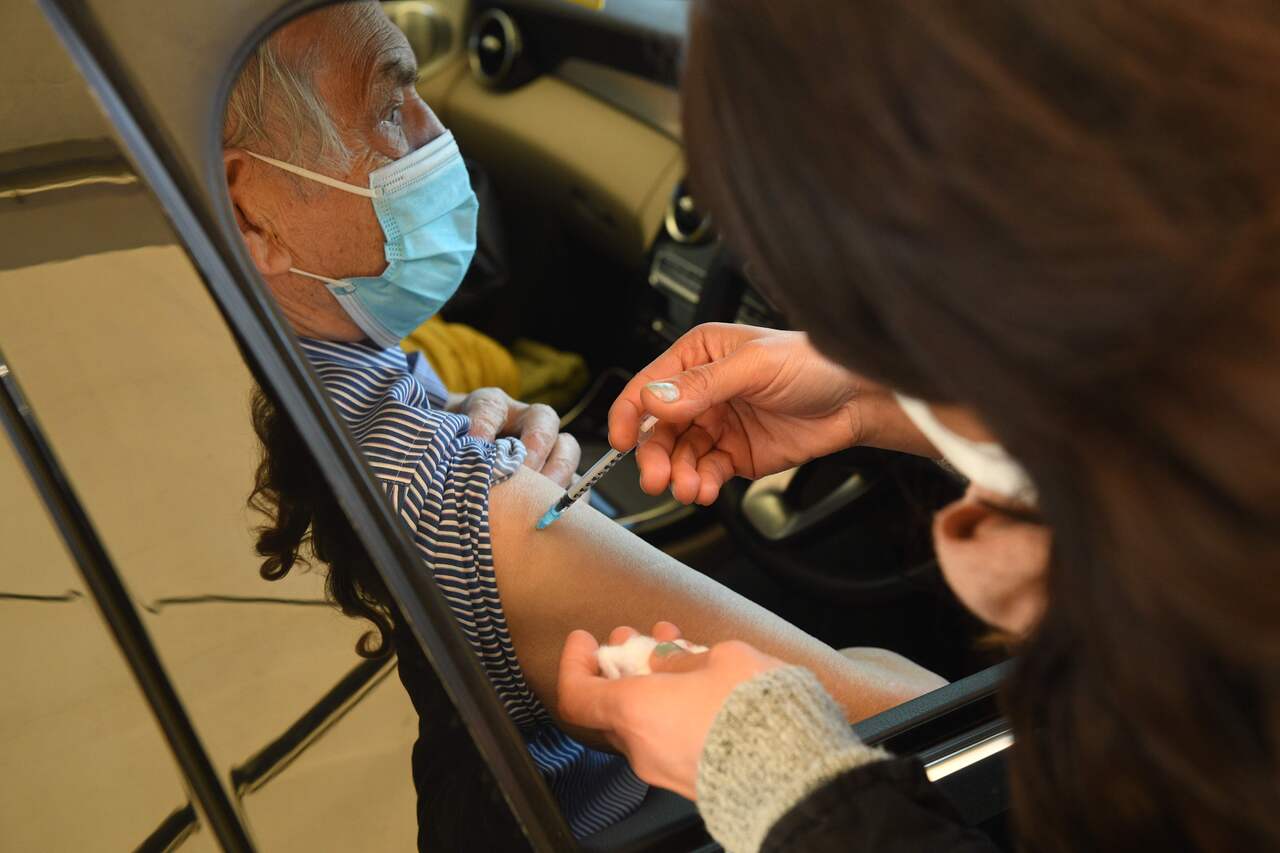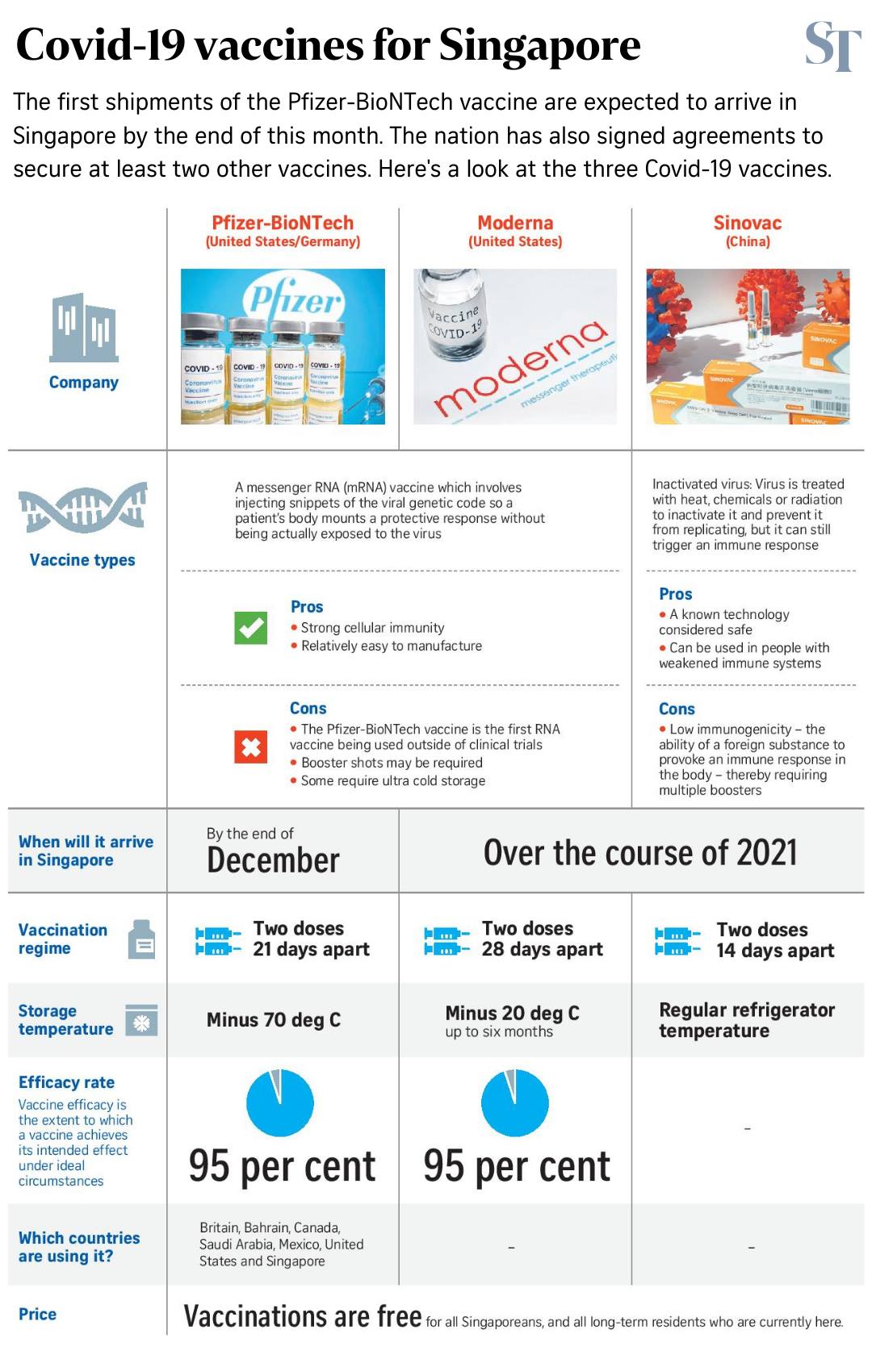Covid-19 RNA vaccines will not lead to a change in one's genes: Experts
Sign up now: Get ST's newsletters delivered to your inbox

The Pfizer-BioNTech Covid-19 vaccine uses mRNA, a genetic material that cells read to make proteins.
PHOTO: AFP
SINGAPORE - Taking a Covid-19 messenger RNA (mRNA) vaccine will not lead to a change in one's genes and result in cancer a few years down the road, experts said on Thursday (Dec 17).
The genetic information flow is one way, they said in answer to a question from a reader at a Straits Times Reset webinar, The A-Z of the Covid-19 vaccine.
On Monday, Prime Minister Lee Hsien Loong announced in a televised address that Singapore has approved the Pfizer-BioNTech Covid-19 vaccine for pandemic use here.
This vaccine uses mRNA, a genetic material that cells read to make proteins. After injection, cells in the body read this mRNA sequence to build spike proteins and these protruding spikes and spike protein fragments can then be recognised by the immune system.
Professor Ooi Eng Eong of Duke-NUS Medical School, who specialises in emerging diseases, said: "Genetic information flows mostly in one direction, from the DNA to RNA to the protein. Think of it as you have a central library that you cannot bring the book out, but you can only copy the page that you need."
RNA cannot become DNA except in the case of certain viruses, known as retroviruses, with the human immunodeficiency virus (HIV) being the most famous example, he added.
But for retroviruses to be able to do so, both their key enzymes are needed to convert RNA into DNA and then integrate the DNA into our genome, he added.
These two enzymes must be in contact with the RNA and DNA, respectively. So even in HIV patients, the likelihood of the enzymes coming together with the RNA at the same time in the cell is very remote, Prof Ooi explained.
"It is not easy. To us, we think a cell is very small, but to the RNA - if the RNA is the size of one human being, the cell is the size of Singapore."

The panel said those who do not have HIV will be perfectly safe. Even if one has HIV, it is still safe, as the chances of gene change are very remote.
Associate Professor Lim Poh Lian, the director of the High-Level Isolation Unit at the National Centre for Infectious Diseases and a member of the Covid-19 Vaccine Expert Committee, also added that the half-life of mRNA vaccines is very short. Once injected, it is quickly taken up by the body's cells and broken down after 48 hours.
"The role of the messenger RNA is basically to give instructions to make protein. And then the immune system actually develops protection. But RNA cannot integrate into the human genome, it actually never gets into the human DNA, because our genetic material is DNA, not RNA," Prof Lim explained.


